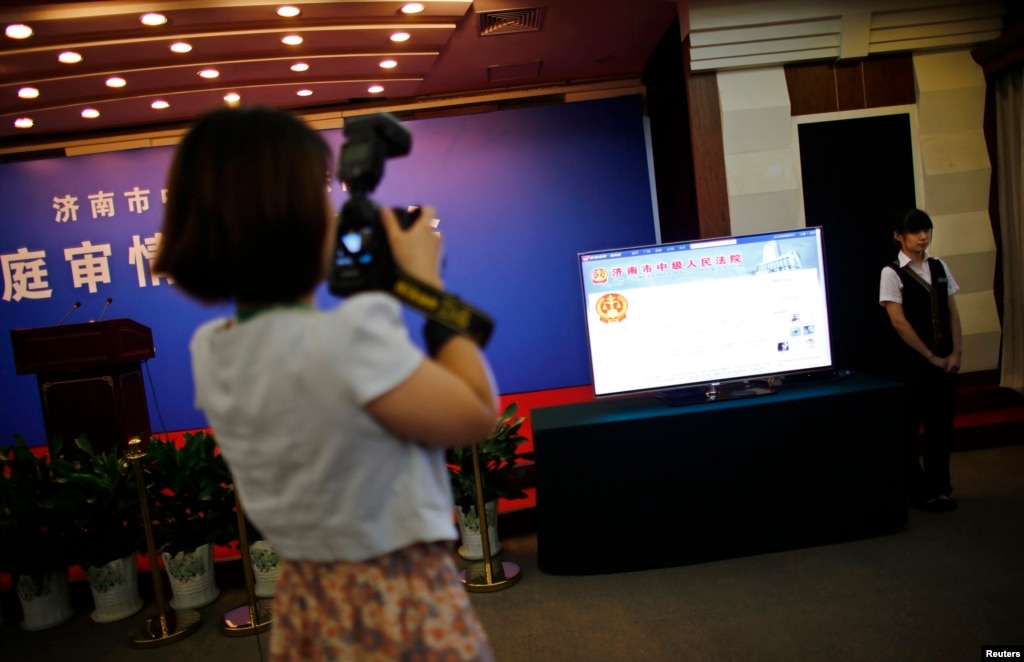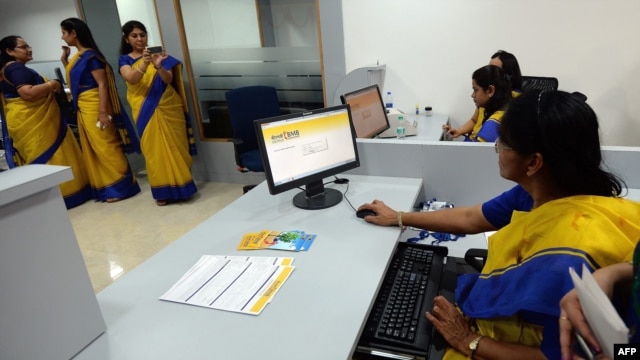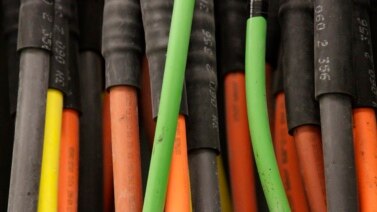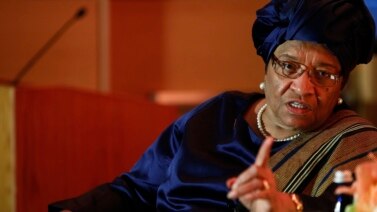
From VOA Learning English, this is As It Is.
Hi, I’m Caty Weaver.
Today on the program, we learn about a new bank in India designed to increase the economic power of women there.
But first, we look at the Chinese government’s plans for media reform. Some observers fear the government is planning to place more restrictions on reporters working in the country.
China Announces Media Reforms
China has announced some big reforms for the economy, and plans for slowly easing social policies. But the ruling Communist Party is also planning changes in the way it lets reporters do their work. Christopher Cruise reports on the plans, which appear to keep the government fully in control of information and the press.
When China observed International Journalists Day earlier this month, the profession there was at an all time low: A reporter who wrote sharply critical stories about a government-owned company was detained. He later said on a government-run television program that he had accepted money to make up stories about the company.
Over the last year, China has announced laws that make it a crime to report false and damaging information on social media. Leading bloggers have also been attacked for discussing political subjects online.
China’s latest report on reform says there is a need to improve the system for guiding public opinion and for dealing with breaking news stories online. But the report also talks about the importance of so-called “watchdog” journalism and the part it plays in uncovering corruption.
Doug Young is a professor of journalism at Fudan University in Shanghai. He says the goals discussed in the report show that the government wants to gain control of social media.
“It’s sort of a two-pronged thing. They want to control it, but they want to let it be an effective tool for uncovering corruption and government mismanagement.”
The report also talks about the need to combine traditional and new media, and it calls for more control over new media.
Li Datong is a former reporter who was dismissed from his job with a state-run media organization because of his opinions. He says he does not see anything new in the government’s plans.
He says China keeps its power over the media through editors who are in charge of information control. But he says it may be more difficult to completely cover up news now. However, he says government departments still can easily hide information about their activities.
Mr. Li says the government needs to be more open about its activities. There may be progress toward that. The government reform report says state-owned businesses must report their budgets and finances more openly. Government departments have also been ordered to be more open.
Chang Ping is a well-known Chinese journalist and commentator. He says there is no possibility of media independence under the current system.
Mr. Chang says the media has to be independent from the party and its political power. He says many in the media are fighting for more space. But he says the government opposes those views and crushes those possibilities.
Recently, China announced plans to train 250,000 reporters on issues such as ethics and how to avoid spreading untrue reports. The training will also include Marxist Communist positions on journalism. The government has asked reporters to study certain books and watch some videos. The training is free. But reporters will be asked to take a test in order to renew their press rights.
I’m Christopher Cruise.
India Opens Bank for Women
India has opened a bank to provide special services to women. The bank is just one effort that is aimed toward improving the economic empowerment of Indian women. Now Caty tells about how the bank will make loans and accounts more available to women.

Komal Devi works cleaning three houses in Gurgaon near New Delhi. She saves about 20 dollars a month from 100 dollars of earnings. But she has nowhere to put the money.
Ms. Devi says she has made many attempts to open a bank account in which to store her money. But she has not been able to so because she does not have any identification documents. She is concerned that her savings are not secure stored at home. She says sometimes her husband takes the money. Sometimes it gets spent.
To help women like Komal Devi, India has opened the Bharatiya Mahila Bank designed mostly for women. Prime Minister Manmohan Singh spoke at the opening in Mumbai. He said some of India’s women have become business leaders but a large majority of them still face major barriers.
“The sad reality is that women in India face discrimination and hardship at home, at school, at their place of work and in public places. Their social, economic, and political empowerment remains a distant goal…They score below men in literacy, in health status, in employment potential and in entrepreneurial skills.”
The Prime Minister has called the bank a small step toward the economic empowerment of women. India is a society where men mostly control family financial resources. Seventy-five percent of women do not even have a bank account. Use of bank credit is also far lower among women compared to men.
Officials say the new bank will help open bank accounts for poor and less-educated women. It will support women business owners with easier loan processes. For example, the bank will offer loans up to $400 for women to start small businesses even if they cannot offer guarantees of payback. Such guarantees, or collateral, are difficult for Indian women because men are the main owners of property.
The new bank will begin operations with seven offices in major cities. It is to expand to 500 offices over four years. The banks will be in city and rural areas.
And that’s As It Is for today. I’m Caty Weaver. Thanks for joining us.





